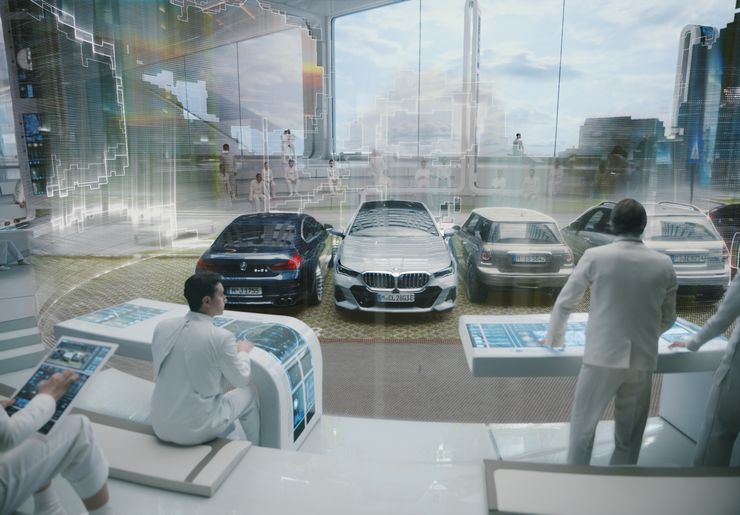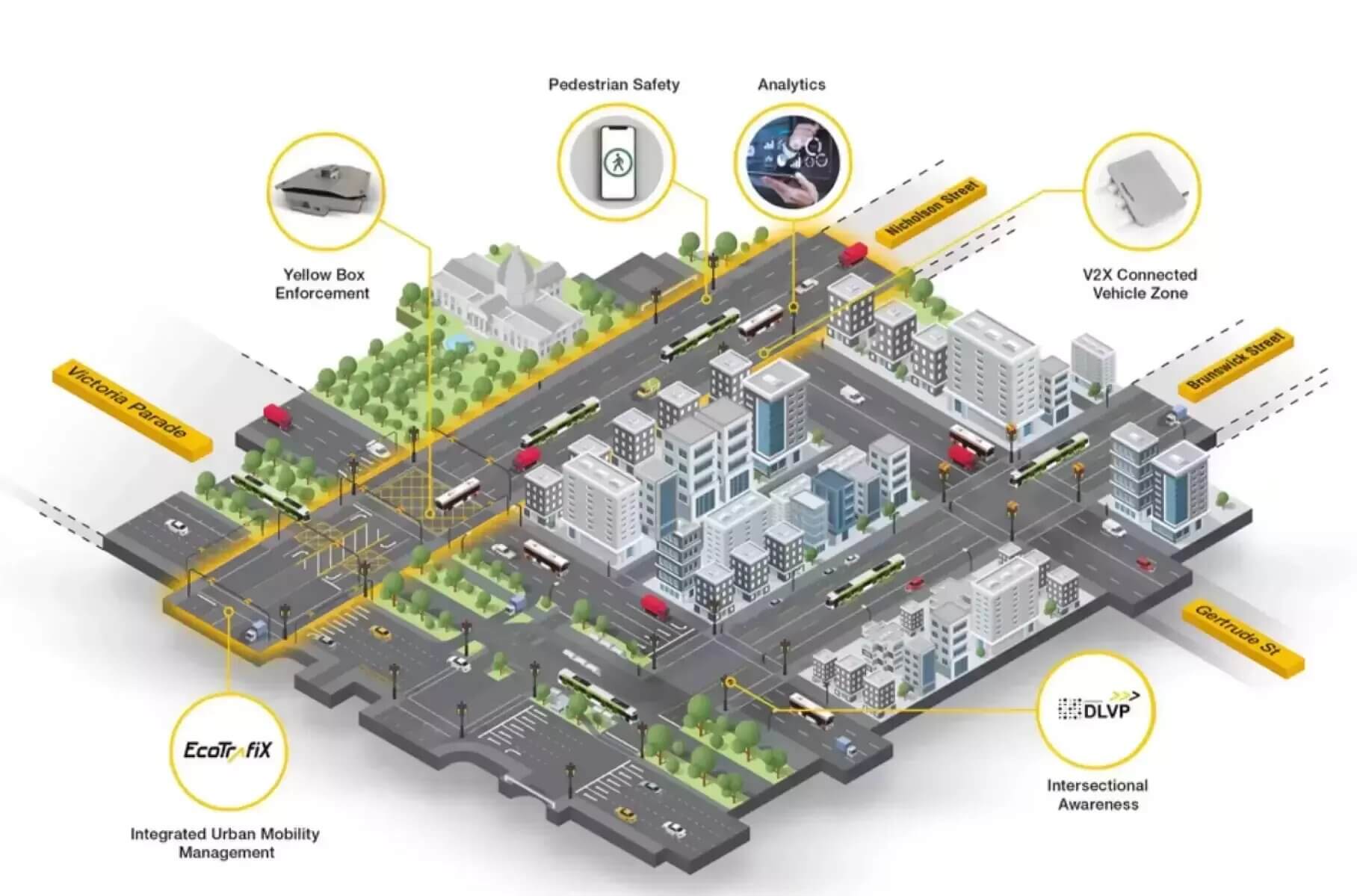BMW is going to throw the intermediate link, popularly called dealers and distributors, into the dustbin of history. The company plans to sell its products on its own. The portal “AvtoVzglyad” thought: maybe the idea of the Bavarians is not as crazy as it seems at first glance?
One of the two truly premium car manufacturers – the famous Die Bayerische Motoren Werke Aktiengesellschaft (BMW AG) – will sell its products directly to European consumers from next year. The Interfax agency quotes the company’s press release: “The new sales model will be beneficial for customers, retail partners and the BMW Group. Standard prices for the same car models within the same country ensure price transparency for buyers. Furthermore, as the BMW Group moves to an agent model, it is digitalizing the entire process, giving consumers the opportunity to choose between online and offline purchases and switch seamlessly between these two channels. All this will be possible thanks to an end-to-end, unified IT infrastructure and full access to a trusted, connected retail network.”
Ideal
Lord, at last! After all, what do we get computers for? Let someone who is not yet here, but in another part of the world, realize that the world has changed irreversibly. Let us not forget that recently hundreds of thousands of traveling salesmen roamed the cities and towns, whose work was considered highly respectable and necessary for society. Where are they now? And who said that dealers, distributors and other official representatives are an irreplaceable and unshakable link in the chain that starts with the manufacturer and ends with the consumer?
What did all the resellers in the car market broadly do? Ideally, their task was to purchase wholesale quantities, set up logistics systems for delivering cars to the final consumer, attract credit to increase sales volumes and maximally customize the mass product to the specific needs of the buyer. Here we deliberately leave out service and warranty repairs, because they deserve a separate, unbiased discussion.
Reality
In reality, everything did not look so rosy – at least in our country. Wholesale quantities were purchased, but in addition to special prices, dealers received various discounts and bonuses, sometimes earned in less than fair ways. At the same time, the end consumer received shish from them and all additional profits went to the middlemen.
Logistical arrangements worked through one place, very much determined by folklore. The most popular, popular and cheap modifications in showrooms were impossible to find during the day. They had to wait months. But beautiful cars, loaded with many unnecessary options, have always been in showrooms – take it, I don’t want it. And they accepted it, even though they swore.
The lion’s share of the claims for a defect were once again passed on to the manufacturer; intermediaries rarely took responsibility for poor quality work. But they constantly lamented, thinking about their difficult fate, demanding benefits and help from the state.
As a result, at least two categories of participants in the sales chain were dissatisfied: manufacturers, from whom a significant share of profits were taken, and buyers, who faced permanently rising prices and low quality of service. Naturally, this course of events was not suitable for anyone, but they had to put up with it, because no alternative was visible in the future.
Outlook
But progress does not stand still; information technologies are developing rapidly. And so the Bavarians were the first on a global level to decide to switch to new forms of business. Well, modern IT tools make it possible to get rid of the troublesome mediation of actual resellers and finally bring the manufacturer face to face with the consumer, so that they can manage their relationship without the participation of third parties.
One of the two truly premium car manufacturers – the famous Die Bayerische Motoren Werke Aktiengesellschaft (BMW AG) – will sell its products directly to European consumers from next year. The Interfax agency quotes the company’s press release: “The new sales model will be beneficial for customers, retail partners and the BMW Group. Standard prices for the same car models within the same country ensure price transparency for buyers. Furthermore, as the BMW Group moves to an agent model, it is digitalizing the entire process, giving consumers the opportunity to choose between online and offline purchases and switch seamlessly between these two channels. All this will be possible thanks to an end-to-end, unified IT infrastructure and full access to a trusted, connected retail network.”
Ideal
Lord, at last! After all, what do we get computers for? Let someone who is not yet here, but in another part of the world, realize that the world has changed irreversibly. Let us not forget that recently hundreds of thousands of traveling salesmen roamed the cities and towns, whose work was considered highly respectable and necessary for society. Where are they now? And who said that dealers, distributors and other official representatives are an irreplaceable and unshakable link in the chain that starts with the manufacturer and ends with the consumer?
What did all the resellers in the car market broadly do? Ideally, their task was to purchase wholesale quantities, set up logistics systems for delivering cars to the final consumer, attract credit to increase sales volumes and maximally customize the mass product to the specific needs of the buyer. Here we deliberately leave out service and warranty repairs, because they deserve a separate, unbiased discussion.
Reality
In reality, everything did not look so rosy – at least in our country. Wholesale quantities were purchased, but in addition to special prices, dealers received various discounts and bonuses, sometimes earned in less than fair ways. At the same time, the end consumer received shish from them and all additional profits went to the middlemen.
Logistical arrangements worked through one place, very much determined by folklore. The most popular, popular and cheap modifications in showrooms were impossible to find during the day. They had to wait months. But beautiful cars, loaded with many unnecessary options, have always been in showrooms – take it, I don’t want it. And they accepted it, even though they swore.
The lion’s share of the claims for a defect were once again passed on to the manufacturer; intermediaries rarely took responsibility for poor quality work. But they constantly lamented, thinking about their difficult fate, demanding benefits and help from the state.
As a result, at least two categories of participants in the sales chain were dissatisfied: manufacturers, from whom a significant share of profits were taken, and buyers, who faced permanently rising prices and low quality of service. Naturally, this course of events was not suitable for anyone, but they had to put up with it, because no alternative was visible in the future.
Outlook
But progress does not stand still; information technologies are developing rapidly. And so the Bavarians were the first on a global level to decide to switch to new forms of business. Well, modern IT tools make it possible to get rid of the troublesome mediation of actual resellers and finally bring the manufacturer face to face with the consumer, so that they can manage their relationship without the participation of third parties.
Source: Avto Vzglyad
Donald Salinas is an experienced automobile journalist and writer for Div Bracket. He brings his readers the latest news and developments from the world of automobiles, offering a unique and knowledgeable perspective on the latest trends and innovations in the automotive industry.
















